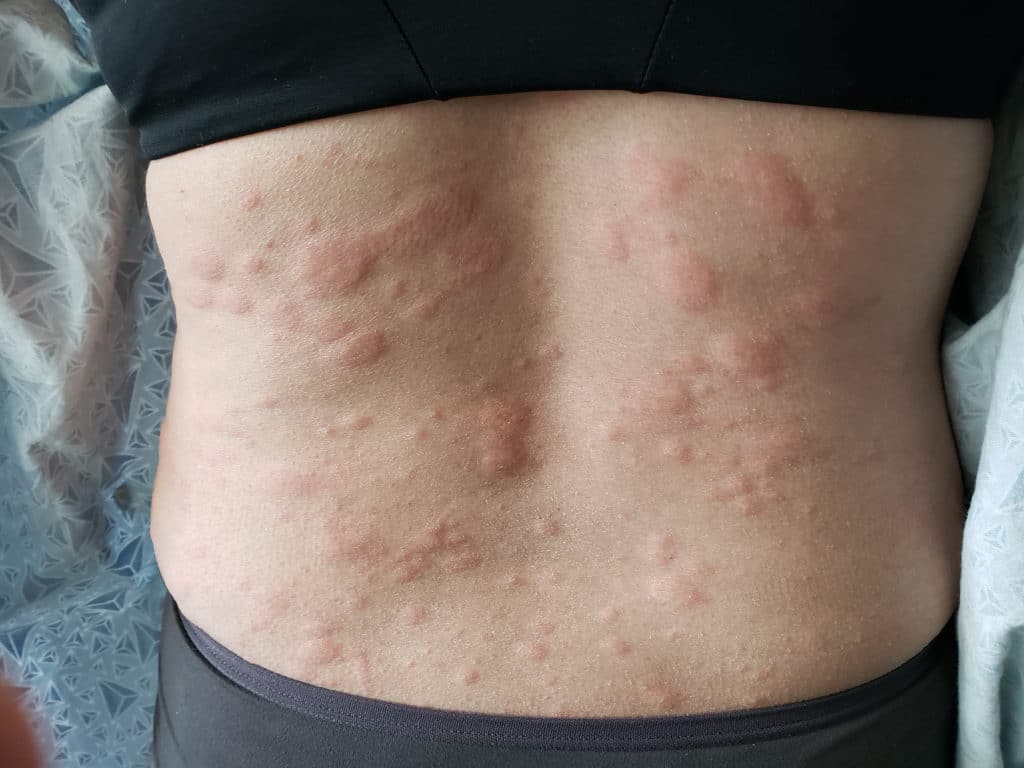Have you ever broken out in hives, and wondered what the cause was? Hives will affect about 20% of people at some time during their lives. Whether you have broken out in hives in the past, or are simply curious to learn more about this condition, read on to learn more.
What are Hives?
Hives, also called urticaria, is an outbreak of red bumps or welts on the skin that appear suddenly. There are many different things that can lead to hives, including allergic reactions,, chemicals in certain foods, sunlight, insect stings, medications, and more. Overall, there are a number of different types of hives, including the following.
- Acute urticaria – These hives last for less than six weeks. They are often caused by foods, medications, and infections.
- Chronic urticaria – These are hives that last for more than six weeks. The cause is often harder to identify, though some triggers may be thyroid disease, hepatitis, infection, or cancer.
- Physical urticaria– These hives are caused by something that stimulates the skin such as cold, heat, pressure, sweating, or exercise. They usually occur right where the skin was stimulated, and appear within one hour of the stimulation.
- Dermatographism-This is a common for or physical urticaria where hives form after firmly scratching or rubbing the skin.
Diagnosis and Treatment of Hives
When diagnosing hives, your doctor may ask you questions to attempt to find the main cause. There are no specific tests to diagnose hives, so testing will depend on your medical history and an exam by your doctor. Skin tests may be done to learn what you are allergic to, or blood tests may be done to identify a possible illness.
Treatment options may include antihistamines, corticosteroids, Xolair, or Montelukast. The exact treatment plant that your doctor will recommend to treat your hives will depend on the cause and type of hives.
Tips to Prevent Hives
The best way to prevent the development of hives is to avoid any known triggers or allergens. Medications can also help to prevent or improve hives. Your dermatologist may suggest other allergy treatments such as allergy shots to improve your hives if they are secondary to a specific allergen.
However, always remember to contact a medical professional right away if you are experiencing hives along with dizziness, wheezing, difficulty breathing, tightens if your chest, or swelling of the lips, tongue, or face, as this may be a sign of a severe allergic reaction.
Contact Us Today
If you are experiencing hives and are seeking professional treatment, contact Arlington Dermatology today for prompt and effective treatment. To book your appointment with Dr. Coyne or Dr. Livingood, give us a call at 703-259-9561 today.



